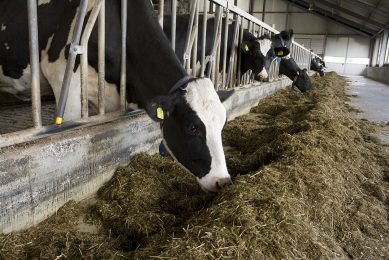No combustion risk with DDGS shipping

Dried distillers grains are wrongly qualified as a risk factor in transport regarding the possibility that they might cause a fire and thus precautions by shippers need to be made.
The International Maritime Solid Bulk Code (ISMBC) will officially enter into force on 1 January 2011 and from this date will be mandatory.
The code facilitates the safe stowage and shipment of solid bulk cargoes by providing information on the dangers associated with the shipment of certain types of such cargoes.
DDGS confusion
There has been concern about Dried Distillers Grains (DDGs), which currently are not included in the code, causing confusion among shippers, ship owners and insurance companies about the procedures for transporting DDGs.
The US is the main exporter of DDGs and exports have risen from 200,000 tonnes in 2004 to 5.6m tonnes in 2009 and the volume is expected to rise to more than 8m tonnes this year.
With such a significant increase in DDG production, Grain & Feed Trade Organisation Gafta and counterparts in the US agreed clarification on the shipping characteristics of the product was needed to avoid unnecessary restrictions.
Some bulk carriers classify DDGs as a risk for spontaneous combustion, and believe vessels carrying such products need to be equipped with carbon dioxide fire extinguishing equipment.
Non-hazardous product
Gafta lobbied International Maritime Organisation representatives and international principal and interest clubs and supported the US Coastguard proposal seeking to classify DDGs as a non-hazardous product in the code.
The IMO Sub-Committee on Dangerous Goods, solid Cargoes and Containers (DSC) considered this proposal at its meeting in September 2010.
Based on the experience of shipping 20m tonnes of DDGS since 2000 the industry considers DDGS to be a non-hazardous cargo.
There have been no reported incidents of loss due to fire, heating or oxygen depletion involving DDGS cargoes during this time.
The proposal reports on combustibility, and other tests that satisfy the criteria for a non-hazardous classification. Such a correct classification would ensure that the cost of DDGS to importing countries was not increased by unnecessary shipping requirements.
Final approval in December
The Working Group completed the discussion on the DDGS proposal on 14 September. The proposal and the Shipping Schedule, Annex 2 of the proposal, were both accepted with minor editorial changes.
Final approval of the proposal will come from the Maritime Safety Committee which meets in December.
The Approved Schedule will officially go into effect on 1 January 2013. However, according to the US Grains council, the schedule can be used as a practical matter after approval by the MSC.
Gafta will now work on the categorisation of corn gluten feed.
Source: Gafta











